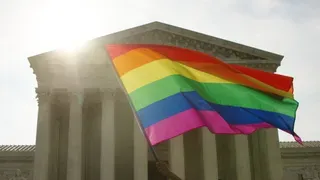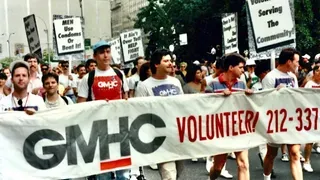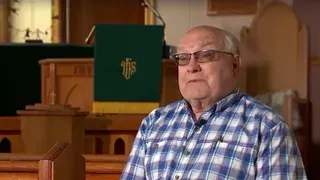October 26, 2010
Anti-Violence Project: Recent alleged hate crimes "a wake-up call"
Michael K. Lavers READ TIME: 3 MIN.
Headlines announcing yet another alleged anti-LGBT hate or bias-motivated crime in the five boroughs have become tragically routine in recent weeks.
From the Bronx to Staten Island and the Stonewall Inn itself (and other places in between,) these attacks have shaken LGBT New Yorkers. The challenge before activists, however, remains how to effectively reduce the rate and severity of anti-LGBT hate and bias-motivated crimes.
Sharon Stapel, executive director of the New York City Anti-Violence Project, stressed to EDGE there are two specific ways to tackle the problem: Passing LGBT-inclusive legislation at the federal level and highlighting the connection between hate speech and rhetoric and violence. Stapel did not specifically mention Republican gubernatorial candidate Carl Paladino's controversial comments at a Brooklyn synagogue earlier this month, but she singled out "so-called community leaders" who take anti-LGBT positions to "further an agenda."
"That kind of hate speech... gives people license to believe that it's completely appropriate to be violent towards folks because of their sexual orientation or gender identity," said Stapel, speaking with gay reporters before AVP's Courage Awards at the Prince George Ballroom in Manhattan on Oct. 18. "There's a direct connection. What we're seeing as the LGBT civil rights movement advances in very meaningful ways, the backlash becomes more severe."
David Wertheimer, former executive director of AVP, agreed.
"Although the climate may be changing, as long as there are people spewing hatred towards our community, people will interpret that as license to hurt us or a license to torment us," he said at the same Oct. 18 press briefing.
These latest attacks have taken place against the backdrop of the rash of LGBT teenager suicides across the country, the debate over the repeal of the military's "don't ask, don't tell" and upcoming mid-term elections. President Obama, House Speaker Nancy Pelosi and Secretary of State Hillary Clinton are among those who have spoken out against anti-LGBT bullying, but activists have become increasingly critical of both the White House and congressional Democrats over DADT, inaction on the repeal of the Defense of Marriage Act, passage of the federal Employment Non-Discrimination Act and other LGBT-specific measures.
"That kind of contradiction is exactly what leads to that culture of violence and our seemingly inability to do anything about it outside of making a public statement or making a YouTube video," said Stapel. "The federal government has to be accountable to all its citizens and all of the ways it promotes this culture of violence."
Stapel further stressed enhanced penalties don't necessarily prevent anti-LGBT hate crimes and bias-motivated crimes-but legislation can help create a societal shift. Richard Haymes, another former executive director of AVP, said these laws empower victims to come forward. He added, however, a top-down approach-anything from stickers on a school guidance counselor's office door to pro-LGBT statements from political, religious and community leaders-is necessary to adequately address anti-LGBT hate and bias-motivated crimes.
"All of these things need to be stated in a way that begins to extinguish the opportunities to misinterpret statements from respected leaders that promote violence," said Haymes.
Stapel conceded changing societal attitudes is far easier said than done, but she described the last few weeks as a "wake-up call" for New Yorkers and Americans around the country.
"We know more and more people are reaching out to AVP and asking what can I do, how can I help," said Stapel. "We have seen a whole bunch people deciding they are going to be not only allies to the LGBTQ community, but active allies to the LGBTQ communities. I know the conversations are happening... that is the responsibility we all have to respond to all this violence and all these tragedies."
Based in Washington, D.C., Michael K. Lavers has appeared in the New York Times, BBC, WNYC, Huffington Post, Village Voice, Advocate and other mainstream and LGBT media outlets. He is an unapologetic political junkie who thoroughly enjoys living inside the Beltway.







